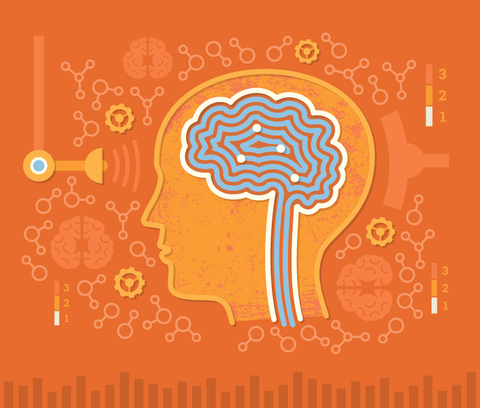Using CBD oil (Cannabidiol) for Treating of Symptoms of Parkinson’s & Other Dementias.
CBD-infused products are undoubtedly the hottest goods within the cannabis community right now – and it does not stop there.
Beyond cannabis users, CBD has now piqued the interest of pretty much everyone; from athletes, to parents, to the old and several others as well.
With such an unprecedented increase in CBD consumption and interest, an appropriate amount of skepticism now exists in the conversation.
Like the THC compound, CBD is in a situation where its unclear legal status limits its ability to offer straightforward answers regarding its safety and efficacy.

While CBD seems to induce no adverse effects on human memory and have no side effects on memory, it still attracts the same level of concern as THC. And while it might look like CBD does not influence our consciousness, a limited number of research findings currently leaves us without any definitive answers.
To offer you some insightful knowledge on the matter, let us examine how the best CBD gummies or oil or tincture on the market affects human memory. In other words, we will answer this question: does cbd oil have side effects (adverse effects) on memory.

What Is CBD?
CBD (Cannabidiol) is a chemical compound obtained naturally from the marijuana plant which has immense medicinal benefits but does not induce a “high” or anxious feeling in users. Organic Cannabidiol gummies, CBD oil, and other CBD products are legal in 47 states of America.
It is important not to confuse CBD with Marijuana or even the THC (Tetrahydrocannabinol) compound commonly known for generating mind-altering effects in users.
CBD exists in marijuana plants, the same way caffeine occurs naturally inside coffee beans or aspirin from the Willow tree's bark.
CBD oil and Cannabidiol gummies are the most widely used forms of CBD administration with the oils contained in gel caps or dropper bottles.
Why People Use CBD.
The population is gradually warming to CBD medication as it continues receiving more knowledge about the subject.
Today, CBD has credit for being a vital component of treatment plans for several problematic issues and medical conditions, including:
- Cancer prevention and treatment
- Acne
- Appetite stimulation
- Addiction
- Chronic pain
- Multiple Sclerosis (MS
- Epilepsy
- Depression
- Weight management
- Recovery from stroke and brain injuries
- Oxidative stress
- Inflammation
- Rheumatoid arthritis
- + much more
With an expected 700% growth in the CBD market by 2020, the need for more research into CBD’s efficacy and any possible side effects, especially for memory, is high.
While anecdotal evidence suggesting that CBD is safe and effective, some uncertainty still lingers despite years of discussion already underway.
As a consequence, recent studies on CBD’s effect on our memory, brains, and our entire bodies have given us some clarity.

Research Findings On CBD And Human Memory.
Anytime a new drug enters the market; most people will naturally question its safety.
With CBD products federally unregulated, they fall into the same grey area as vitamins and food supplements at this time. As such, the concern over the safety of CBD gummies, and oils have been much higher than other similar items.
In spite of criticism, the WHO (World Health Organization) recently published findings stating CBD’s medical benefits with nearly zero associated health risks.
A study - conducted in 2017 - on CBD’s effect on Alzheimer's disease revealed notable findings suggesting that CBD may even enhance memory and doesn’t have side effects on memory.
The results discovered that CBD medication reversed any cognitive deficits in humans.
Explicitly, the research stated that CBD treatment was able to effectively reverse the short-comings in both social recognition memory as well as objection recognition memory without impacting the stress parameters of the body.
The literature of the research focused mainly on psychotic disorders and epilepsy.
After analyzing the potential neuropsychiatric and neurological effects, the results suggested that CBD products had no adverse impact or side effects on learning tasks which tested for verbal memory.
The analysis also utilized CBD treatment to suppress addiction to smoking. Research subjects were given CBD inhalers whenever they felt the urge to smoke, cutting usage by 40%.
Health Benefits Of CBD For Dementia.
Conditions associated with dementia that CBD may be able to manage: Alzheimer’s disease, Huntington’s disease, and Dementia with Lewy bodies (DLB), Vascular Dementia, Front-temporal dementia, and Parkinson’s disease.
According to researchers working at California’s Salk Institute, their study in 2017 has revealed evidence that cannabinoids like CBD may help in removing dementia from human brain cells.
While the United States FDA (Food and Drug Administration) is yet to approve any CBD drugs for the treatment of dementia, it has adopted a CBD-infused pill for the treatment of epilepsy.
CBD For Parkinson’s Disease.
Parkinson’s is an acute progressive disease affecting the nervous system of chiefly middle-aged and elderly individuals.
Parkinson’s is associated with reduced dopamine levels and marked by muscular rigidity, tremor, as well as slow, imprecise movement.
Cannabinoids like CBD have useful anti-inflammatory and antioxidant properties that may be beneficial for coping with Parkinson's disease.
According to these studies and investigations, it is crystal clear that cbd has no side effects on memory, brain or other parts of body.
Obtaining CBD.
The most common method of obtaining the best CBD gummies or oil or tincture on the market, is from any state-licensed dispensary; or you can follow the link below;








Leave a comment